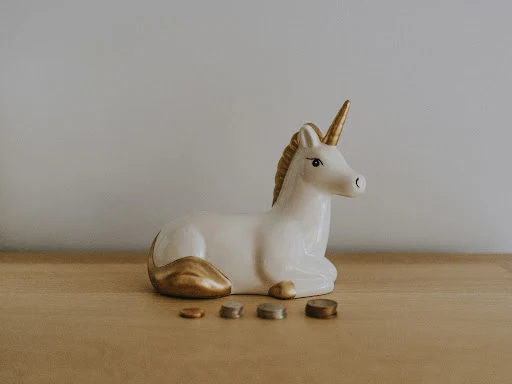Frugal Living: Is it Worth It
The articles on this blog may contain affiliate links. If you click and buy from it, I will earn a small commission from that purchase.
Being frugal can provide numerous advantages, both financially and in terms of overall well-being. Yes, frugal living is worth it! If you don't know why,here are some benefits of being frugal worth the effort.
Benefits of Living Frugal
1. Financial Benefits
Increased Savings: By spending less, you can save more for future needs or emergencies.
Debt Reduction: Frugality can help you pay off your debts faster by freeing up funds for repayment.
Financial Freedom: By reducing your expenses, you can work toward financial independence.
2. Reduced Stress
Less Financial Pressure: Managing your money wisely can alleviate the stress that comes with living paycheck to paycheck.
Emergency Preparedness: Creating an emergency fund through frugality gives you peace of mind in the event of unexpected expenses.
3. Improved Decision-Making
Mindful Spending: Being frugal helps you distinguish between needs and wants.
Value-Based Choices: Rather than making impulse purchases, you prioritize quality and value.
4. Environmental Benefits
Waste Reduction: Frugal habits such as reuse and recycling help to reduce waste and its environmental impact.
Sustainable Living: Buying less and using secondhand items is often associated with environmentally friendly practices.
5. Personal Growth
Frugality can inspire creative and resourceful solutions to meet your needs.
Gratitude and contentment: Living with less can help you appreciate what you already have.
6. Long-Term Benefits
Retirement Security: Saving and investing wisely now can lead to a comfortable retirement.
Investment Opportunities: Frugality allows for long-term wealth growth.
Achieving Goals: Frugality can help you fund life goals like buying a house, traveling, or starting a business.
How to Start Living Frugal
Being frugal entails making deliberate choices about how to spend, save, and manage your money. Here are some practical steps to embrace frugality:
1. Change Your Mindset
Define Priorities: Concentrate on what is truly important to you and eliminate unnecessary expenses.
Embrace Minimalism: Instead of accumulating possessions, prioritize experiences and necessities.
Delay gratification: Wait before making purchases to ensure they meet your needs.
2. Budget Wisely
Track Your Expenses: Use a budgeting tool or app to figure out where your money goes.
Set Spending Limits: Create a budget that prioritizes savings while minimizing discretionary spending.
Plan ahead: Consider future expenses such as holidays, birthdays, and emergencies.
3. Save on Everyday Expenses
Buy in bulk: Save money by purchasing non-perishable items in large quantities.
Shop Smartly:
Use coupons, cashback apps, and promo codes.
Wait for sales before purchasing.
Compare prices both online and in-store.
Cook at home instead of eating out or getting takeout.
4. Reduce Bills
Energy Efficiency: Turn off lights, unplug electronics, and purchase energy-efficient appliances.
Negotiate Rates: Call service providers to request discounts or better deals.
Cut Subscriptions: Cancel unused or unnecessary memberships (such as streaming services or gym memberships).
5. Reuse and Repurpose
DIY Projects: Repair items rather than replace them.
Buy Secondhand: Visit thrift stores, garage sales, or online marketplaces.
Reuse Items: Recycle jars, bags, and other household items.
6. Focus on Saving
Automate Savings: Create automatic transfers to a savings account.
Create an Emergency Fund: Set aside at least 3-6 months' worth of living expenses.
Invest Wisely: Consider low-risk investment options for growing your money.
7. Limit Impulse Spending
Use a Waiting Period: Allow 24-48 hours before making any non-essential purchases.
Shop with a List: Stick to a pre-written shopping list to avoid buying unnecessary items.
Avoid Temptation: When you do not need anything, avoid going to malls or shopping online.
8. Adopt a DIY Lifestyle
Learn Skills: You can do simple tasks like sewing, home repairs, and car maintenance yourself.
Start a small herb, vegetable, or fruit garden to grow your own food.
Make Your Own Gifts: Save money while adding a personal touch to special occasions.
9. Travel Frugally
Plan Off-Season Trips: Avoid peak seasons to save money on your trip.
Utilize Rewards: Use credit card points, frequent flyer miles, or loyalty programs.
Consider budget options such as hostels, Airbnb, or other low-cost accommodations.
10. Review Regularly
Evaluate Your Spending: Check your budget on a regular basis and make necessary adjustments.
Reflect on Goals: Make sure your financial habits are in line with your long-term priorities.
Recognize small accomplishments to stay motivated.
Final Thoughts
In essence, frugality is not about deprivation; rather, it is about aligning your spending with your values and priorities in order to live a more satisfying and sustainable life. By consistently implementing these habits, you can reap the benefits of frugality while leading a fulfilling life.
Being frugal is not about deprivation; it is about empowerment, mindfulness, and making financial decisions that align with your values. It allows you to prioritize what is truly important, eliminate waste, and live a more intentional and fulfilling life.
Adopting a frugal mindset can help you achieve financial freedom, reduce stress, and create a sustainable future. It is not just about saving money; it is about making better decisions that lead to long-term stability and happiness.
Finally, frugality is a tool for living more intentionally, achieving your goals, and appreciating the abundance in simplicity.








